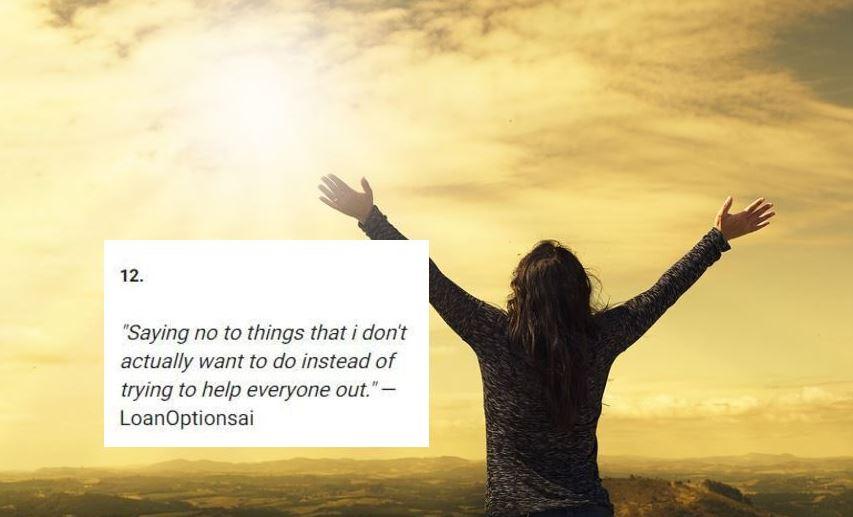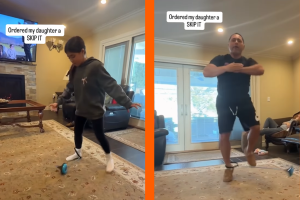Mental health is a very complex issue and it would be naive to say there are quick and easy solutions to significant issues. However, there are many things in our lives we often overlook that may be bringing us down that can be substituted for simple habits that can help bring us back up.
The National Institute of Mental Health says that maintaining our mental health requires routine maintenance known as “self-care.”
“Mental health is more than the absence of a mental illness—it’s essential to your overall health and quality of life,” the Institute says on its website. “Self-care can play a role in maintaining your mental health and help support your treatment and recovery if you have a mental illness.”
This perspective on mental health suggests it’s just as important to focus on our mental well-being as we do on our physical. The NIMH says that cultivating an attitude of gratitude, regular exercise, getting enough sleep, eating healthy and staying hydrated can all have a positive impact on our mental health.
A Reddit user by the unfortunate name pissed_at_everything reached out to the online forum asking people to share the small changes they’ve made that had a big impact on their mental health. The post received nearly 5,000 pieces of advice.
“What is something that drastically improved your mental health?” they posted on the AskReddit subforum. A lot of people said that eliminating toxic things from their lives had a big impact, whether it was social media, people or negative self-talk. There are bound to be a few suggestions on the list that can help you, too.
Here are 19 of the responses we thought were most helpful.
1.
“Sleep.” — ortolon
2.
“Silencing my activity on social media, and replacing my time spent on there by reading books instead. I’ve finished 6 books since the start of January. I feel so good about myself because of it.” — chick3nslut
3.
“Knowing it’s okay to leave some people behind.” — Black_Guardian-
4.
“Being honest and transparent about how I’m feeling. ‘I’m not mad at you, my brain just hates me right now,’ has helped mitigate lots of fights and awkward conversations.” — Nillabeans
Ansteve1 added:
“Being honest with myself and those closest really helped. Even on bad days I don’t feel like I am hopeless.”
5.
“Something small that has helped me is saying aloud ‘What a beautiful day, today is.’ It’s small but I have better outlook.” — turtlepawa123
6.
“Exercise.” — iamnobody1970
Counterboudd added:
“It sucks at how well it works. I used to hate my mom telling me that exercise would reduce my depression but she was absolutely right. The issue is that when you’re really depressed it’s the last thing you feel like doing. But nothing else has as much of a positive effect on my mental state as regular exercise.”
7.
“Taking vitamin D and B supplements and getting enough sleep. Really helped reduce excessive thinking and fixating on negative things from my past.” — AnDagdadubh
Tracknumberseven added:
“One exercise I sort of figured out myself is: Whenever I find myself regretting things or remembering embarrassing moments is to tell myself to ‘look forward, not backwards’ and I’ll start thinking about things I’m looking forward to or things I’m grateful for.
“If I can’t think of any of these things then I’ll think of things I don’t have to worry about, like having a paycheck. Failing any of that I go smaller and think about positive times, making someone laugh or helping someone out and usually by that time I’ve forgotten about whatever I was thinking about in the first place.”
8.
“Deleting my Facebook account.” — theStormweaver
MichaelM_yaa added:
“Yeah, so it turns out that the algorithms that keep users addicted to social media are WAY more powerful than the AI bots that can beat the best chess players in the world. People tend to engage media that makes someone enraged or negative. it further polarizes humans. it also is a massive disinformation sink as a majority of its users do not fact check any info they see.”
9.
“Moving to a place that wasn’t winter 8 months of the year and I was close to the ocean. Haven’t felt suicidal in over a year and a half, probably for the first time since i was 16.” — wyrd_werks
10.
“Getting a job that paid a living wage improved my mental health 1000%.” — rigel899
11.
“Enforcing boundaries in work.” — SmartPromegranate4833
12.
“Saying no to things that I don’t actually want to do instead of trying to help everyone out.” — LoanOptionsai
13.
“Stopping hormonal birth control. Didn’t realize how much it was messing with me.” — impossibility_day27
14.
“Eating breakfast.
“I’d often describe to my boss and coworkers that I’d have a really bad brain fog that I sometimes couldn’t think at all. I usually wouldn’t eat until around 1pm or 2pm when I’d been up since 9am. I had to start getting up around 8am or sometimes 7am and I would have extra time to get food.
“Once I did, the brain fog went away and the change was immediate.” — Christygl7
15.
“Quit having grudges with people. Let them go and you’ll be relaxed.” — Weak_Carpenter_7060
16.
“Adult hobbies. Surfing. Fishing. Running. Mine are solo activities, but you just need something challenging that you have to work at to get better. It gives you little things to look forward to so you’re not focused on all the depressing bs.” — musashi-swanson
17.
“Cutting back on negative self-talk. It’s difficult to stop doing and to catch myself thinking poorly about myself but I try my best. I’ve started replacing it with kind things in a sarcastic tone, for example I often call myself a ‘national treasure’ or ‘god’s favorite’ (i am not religious, it just makes me smile) and the sarcasm scratches the itch, it works very very well. My goal is then to replace the sarcastically nice self-talk with genuinely kind and positive self-talk.
“It’s helped tremendously with my self image honestly.” — bunnihun
18.
“I take ten minutes a day (usually before bed) to tidy things up. I’m always surprised at how much I can get done in just ten minutes, and it’s so much easier to keep the place clean that way. When things start getting really bad, the fact that I’ve always got a clean place is incredibly helpful.” — future-unperson
19.
“Stopped paying close attention to the news. I realized I wasn’t going to be making a big change in the world and all it was doing was getting me upset so I stopped. The world is just as messed up and/or ok as it was then and I’m much less stressed about it all.” — rhett342


































